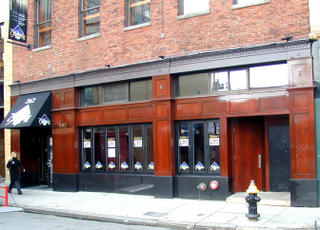Test Your TTAB Judge-Ability: Is THE COOLER COMPANY Merely Descriptive of Coolers?
The Coleman Company applied to register the mark THE COOLER COMPANY for "food and drink containers for domestic use; portable water carriers, namely, jugs sold empty; portable coolers and jugs of both rigid and fabric construction." Examining Attorney Ira J. Goodsaid refused registration under Section 2(e)(1) on the ground of mere descriptiveness. Coleman contended that the mark has a double meaning: that it is a company that sells coolers, and that applicant is "cooler," i.e., more fashionable and hip, than other companies in the field. How do you think this came out? In re The Coleman Company, Inc., Serial No. 85980011 (December 4, 2013) [not precedential].
The Board found that the examining attorney had made a prima facie case that THE COOLER COMPANY is "highly descriptive" of applicant's products. THE COOLER COMPANY "clearly and unambiguously describes applicant's business and related products." Coleman conceded as much when it argued that the mark "on the one hand ... conveys that Applicant offers coolers, i.e., containers for food and beverages."
However, Coleman asserted that its mark involves a creative double entendre: "an ambiguity of meaning arising from language that lends itself to more than one interpretation." [E.g., the following marks were found registrable: SUGAR & SPICE for bakery products; NO BONES ABOUT IT for boneless ham; THE FARMACY herbs and organic products for medicinal purposes; MufFuns (stylized) for muffins; TENNIS IN THE ROUND for tennis facilities; THE HARD LINE for mattresses; THE SOFT PUNCH for soft drinks; CHERRY-CHERRY-BING for bing cherries]. But unlike the instant case, some of the examples above set forth above include "stark incongruities" in addition to a potential double meaning.
The Examining Attorney maintained that there is no argument here because the alleged second meaning is not readily apparent from the mark. [E.g., THE GREATEST BAR not registrable as a double entendre because the second meaning (honoring Boston's greatest sports stars) was not readily apparent from the mark itself, without reference to other indicia].

Coleman contended that the second meaning is readily apparent, since the slang meaning of "cool" is found in many dictionaries. It argued that customers are likely to perceive the word "Cooler" as "a play on the hipness of applicant and or applicant's thermal products."
The Board agreed with Coleman that the word "cool" does have a meaning of "hip" or "fashionable." But it noted that Coleman and the examining attorney seem to agree that the mark is "highly descriptive" of the goods. The question was whether applicant has made a sufficient showing that the mark would be perceived as a double entendre.
The Board pointed out that, since applicant's goods are coolers, any argument about "the ability of an alleged double entendre to overcome the bar of Section 2(e)(1) must be strong." However, there was no evidence of consumer recognition of the supposed double entendre. The fact that Coleman, in its advertising, "is working exceedingly hard to create an aura of fashionableness and trendiness ... around a class of good many consumers might well not place highly on the hipness scale, strengthens the conclusion that consumers will not readily perceive this alternative meaning of 'Cooler.'"
And so the Board found that the applied-for mark does not operate as a double entendre.
Read comments and post your comment here.
TTABlog note: FWIW, when I first saw the mark and the goods, the double entendre did not occur to me.
BTW: I don't recall another case in which the Board applied the "highly descriptive" tag in a "double entendre" context to raise the bar for the applicant.
Text Copyright John L. Welch 2013.





2 Comments:
So, they admit that the mark has two meanings, but they then want proof that the mark has two meanings. This is akin to the secondary meaning standard, which usually is applied to surnames, geographically descriptive marks.
What if they changes the mark to the "Coolest Company"? I don't that would be a problem.
In my personal opinion, it's not descriptive - it's generic. But I understand it's not legally generic. I picked up on the double entendre, but only because that was the only argument I could fabricate in my mind to even base an appeal on. I imagine the Board saw through that as nothing more than an attorney's creative lawyering, and I also imagine that Coleman was impressed with their attorney because the double entendre never even dawned on them.
Post a Comment
<< Home